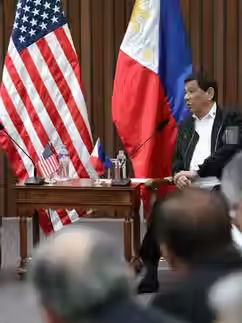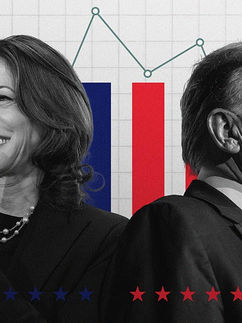The Final Independence Referendum of New Caledonia

Declan Hourd
On 12 December 2021, the world had a chance to see the birth of the independent nation of New Caledonia, but a boycott and heavily skewed result have instead left tensions heightened and the future unresolved. Achieving decolonisation from the French has been a long-held desire of the indigenous Kanak people who today comprise approximately 40% of New Caledonia's population. The road to achieve a independence has been long and without a guaranteed outcome. A significant milestone in this process was the Noumea Accords, signed in 1998, which legislated a promise from Paris to Noumea to implement mechanisms of greater autonomy, cultural respect, and the opportunity to gain political self-determination through democratic referendum. The referendum this week was the third and final opportunity for New Caledonian independence. However, new geopolitical tensions surrounding the French role in the Indo-Pacific and the global public health crisis brought on by the coronavirus have added new complications to the Kanak plight for political autonomy in their traditional lands.
Colonial Reclassification
New Caledonia was colonised by the French in 1854 and the discovery of rich nickel deposits on the island saw great migrations of workers from within the empire and elsewhere to exploit the opportunity. For nearly a century the exploitative, exclusionary, and racist structures of colonialism stood in place. Support for the Free French government in World War II paved the way for more autonomy for the island country and the establishment of a multiethnic general council that governed the island. Once the war had concluded, Paris committed to liberal reforms to their colonies in order to retain them. In 1959, New Caledonia democratically voted to remain under French sovereignty, and the island was redesignated as an external territory of France, with its wartime won autonomies intact.
Kanak Separatism and the Matignon Accords
This increased political autonomy was short-lived due to the increasing commodity prices of nickel in the 1960s. Paris unilaterally withdrew these reforms, centralising the administration of these natural resources and the government in the name of the national interest, and encouraging more European migration to the islands. This recolonisation of New Caledonia would foment renewed interest in anti-colonialism with an infusion communist, Marxist, and socialist ideas brought from abroad by returning students, mirroring the civil unrest of the concurrent May ‘68 movement happening in France. There was a plurality of radical groups that agitated for change in this period. This agitation would result in the publishing of journals and newspapers, protests, demonstrations, and riots.
This environment would also prove fertile for the formation of Kanak political parties. Collectively these parties lobbied for increased autonomy or independence, elimination of racism, promotion of the unique Melanesian culture and improving material conditions. Parties were ideologically divided and struggled to achieve mainstream political recognition,subsequently merging in 1984 to form the Kanak and Socialist National Liberation Front (FLNKS).
The formation of a unified political front allowed the independence activism to take on international characteristics. The Melanesian Spearhead Group (MSG) was formed with newly decolonised Melanesian nations of Papua New Guinea, the Solomon Islands, and Vanuatu the intention of supporting FLNKS case for independence. The establishment of this subregional group was important in generating wider international support at the 1986 UN General Assembly where, despite French protestations, New Caledonia was relisted as a non-self-governing territory which brings international scrutiny to the French administration. Building an international network of allies in the MSG and their plight for decolonisation recognised formally in the UN gives independence activists a larger platform to project their goals onto, and can force Paris to act faster than they normally would if only faced by domestic pressures.
Despite these major developments, there were no improvements to the New Caledonian political environment. In 1988 militant FLNKS members assaulted a police station, took hostages, and assumed a defensive position in Gossanah Cave on Ouvéa island. A tense standoff between separatists and the French military resulted in 19 Kanaks and six police staff dead. The severity of this conflict shocked both sides into negotiations that would result in the Matignon Accords of 1988.
The Matignon Accords were a major compromise between FLNKS and Paris, and the first step in a peace that has lasted 30 years in New Caledonia. The Accords would see the issue of independence, and associated activism, postponed for 10 years. In exchange, three new provinces would be created. The borders of the North and Loyalty Island Provinces were drawn to encapsulate Kanak majority territories, returning a measure of political autonomy to indigenous peoples, and the South Province would have a majority of residents with European heritage.
The Noumea Accords
After the 10 years postponement guaranteed by Matignon, the issue of independence became a live political issue which necessitated a new agreement. In 1998, the Noumea Accords were implemented to resolve the grievances of the Kanaks.
The Noumea Accords are a substantial document which recognised the Kanaks as the original inhabitants of New Caledonia and that colonisation was a process imposed upon them which alienated them from their traditional lands in the name of conquest and profit, and undermined their culture, civilisation, and identity. Paris also agreed to return cultural artefacts stolen from New Caledonia.
The Noumea Accords committed to three democratic independence referendums to take place 20 years after the signing of the accords, allowing for the transfer of full sovereignty from France to New Caledonia. Furthermore, to prevent French migrants from outnumbering the Kanak vote the electoral roll was restructured to ensure that only long-time residents, and their relations, of New Caledonia could participate in these referendums.
During the two decades preceding the first referendum, Paris would begin to transition more responsibilities of the metropole to New Caledonia, thus restoring and increasing the autonomy Noumea enjoyed prior to the 1960s. These responsibilities included policing, lawmaking capacity, and administration of mining projects, as well as limited foreign policy options like joining international organisations and creating agreements with regional countries. The Accords also saw the commencement of a range of development initiatives across the islands such as the electrification of rural areas and the implementation of profit sharing from mining operations. Critically, these improvements, both political and material, would not be reversed should the independence referendums fail to pass.
The Noumea Accords has largely been successful at delivering upon its promises of political access, however, there is a lack of a Kanak professional class to take advantage of these changes. The 2011 UN Special Rapporteur brought attention to these deficits stating: “There are no Kanak lawyers, judges, university lecturers, police chiefs or doctors, and there are only six Kanak midwives registered with the State health system, out of a total of 300.” Furthermore, the development initiatives proposed by the Accords have failed to deliver substantive results. Kanaks disproportionately live in poverty, are over incarcerated, and many do not attain secondary education diplomas.
Independence Referendums: 2018 and 2020
The 2018 referendum saw a voter turnout of 81%, a number that conferred legitimacy to the results, which saw 56% of residents vote to remain. Despite losing, the independence movement was not deterred by the results. It represented how competitive the desire for New Caledonian sovereignty was among the people. The 2020 referendum saw an improvement for the voting statistics with 85% turnout and the remain camp eked out a slim majority of 51%. This improvement in the polls has been attributed to the proactivity of separatist campaigners to persuade electorates that had previously abstained from voting and the deft use of social media to engage the youth vote. Social media has become an essential part of daily life and political engagement, and comparative inexperience from Paris on these platforms to reach similar audiences undercuts the loyalist cause because there is a dearth of evidence to support.
Despite these improvements, the independence movement has been unable to flip a significant amount of the European population of the island, which has consistently voted to remain in both elections. There are substantial material benefits for retaining its relationship with France, and these are major obstacles to the cause for independence. New Caledonia receives €1.5 billion in subsidies from France, constituting 15% of New Caledonia’s GDP, and significant funding for essential services, and residents are also granted French passports.
Coronavirus, the contested Indo-Pacific, and independence referendum 2021
The containment measures for the coronavirus in New Caledonia were initially largely effective, with the nation being COVIDfree until August 2021. Between September and October 2021, an outbreak of the more infectious Delta variant wreaked havoc in the community, causing thousands of infections per day and hundreds of deaths. Eighty percent of these cases, both infections and deaths, have been borne by Kanak and other Pasifika communities, demographics that support independence. Indigenous communities across the island have entered into a period of mourning, and these practices take precedent over any and all political activity.
It is during this time the metropole scheduled the third referendum for 12 December 2021. In an October 2021 interview, in defence of this culturally insensitive decision, the French Overseas Minister Sebastien Lecornu stated that only an “out-of-control pandemic could justify a postponement” and that “in democracies elections are held on time.” It is in French interest to push for this election now to retain control over New Caledonia. In the international domain, Paris has worked to be Europe’s leading voice on the Indo-Pacific because of the sovereign territory held in the region and New Caledonia is a point of significant investment for its regional security apparatus. On a domestic front, President Emmanuel Macron is up for re-election in 2022 and New Caledonia becoming independent of France would be an incident used by his political opponents. These two concerns intertwine with the recent AUKUS deal that simultaneously appears to minimize the French role in the Pacific and undermine Macron’s credibility with the loss of the $90 billion submarine contract.
In minimizing the concerns of the Kanaks and the spirit of the Noumea Accord, France is undermining the political autonomy of New Caledonia. The overwhelming vote against independence reported on the 12th is a product of the refusal of independence groups to participate, reflected in a strikingly low turnout rate of only 41% of the eligible population. Participation at the voting booth has served as a proxy for legitimacy in the prior elections, and without this vital component in place it might usher a new era of civil discontent and violence to New Caledonia. Already there are calls to contest the outcome of this referendum from FLNKS and the MSG Secretariat.
In some ways history is repeating itself in New Caledonia, where local autonomy is being overruled by the strategic interests of the metropole. While independence is the ultimate goal, fruitful compromises can be reached embodied by the peaceful legacy of the Matignon and Noumea Accords. The onus is on Paris to recognise that it is stoking the flames of future civil unrest and that there is still time to compromise before it is too late.
Declan Hourd is a recent Master of International Relations graduate from the University of NSW. He is interested in exploring the geopolitics of the Indo-Pacific and what that means for the people who live there. He is also the YDS Regional Correspondent for New Zealand and the Pacific.

















Comments